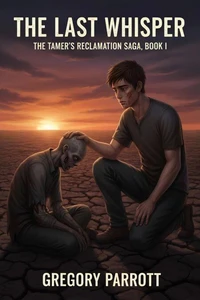What remains after ash? Footfall. Repetition. Ritual. In The Weight of the Drummer's March, the Whitmans move from metaphor to movement. With their story erased from statute and scripture, they step into the street-not to demand restoration, but to embody memory in cadence. A protest begins not with signs, but with a child walking silently, each step echoing the name of someone unsung. Across the city, a rhythm builds: syncopated grief, generational breathwork, a chorus without voice.
As old state hymns echo from watchtowers, Clara Whitman and her companions reclaim percussion as prayer. They don't want revolution. They want recognition. And the street responds-not with force, but with reverence. This is not a book of battle cries. It's a book of footsteps that remember.
What remains after ash? Footfall. Repetition. Ritual. In The Weight of the Drummer's March, the Whitmans move from metaphor to movement. With their story erased from statute and scripture, they step into the street-not to demand restoration, but to embody memory in cadence. A protest begins not with signs, but with a child walking silently, each step echoing the name of someone unsung. Across the city, a rhythm builds: syncopated grief, generational breathwork, a chorus without voice.
As old state hymns echo from watchtowers, Clara Whitman and her companions reclaim percussion as prayer. They don't want revolution. They want recognition. And the street responds-not with force, but with reverence. This is not a book of battle cries. It's a book of footsteps that remember.

 , qui est-ce ?
, qui est-ce ?